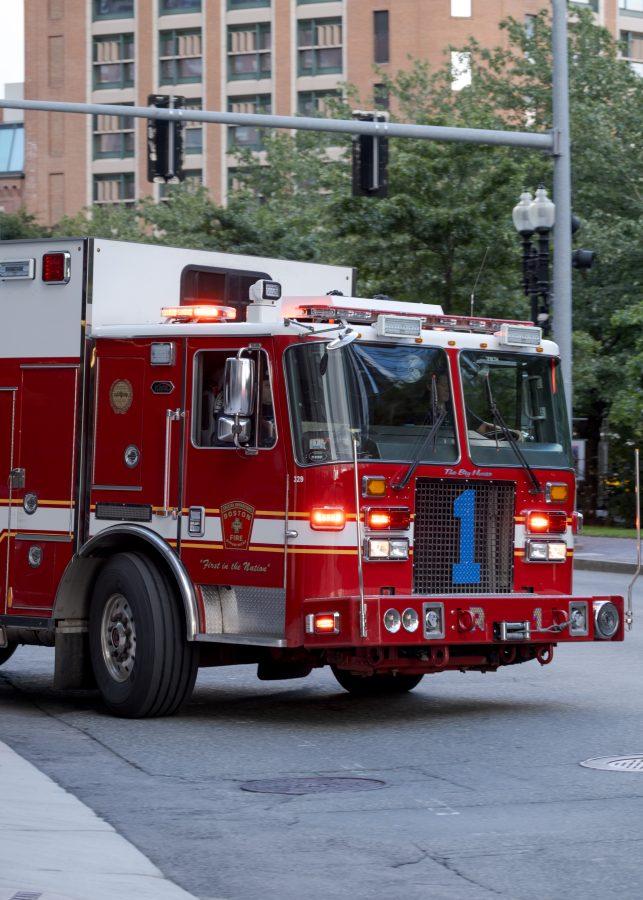I became a volunteer junior firefighter at 16 years old in a small town in Vermont. This may seem quite young to be doing such a thing (admittedly it probably was), but it was one of the most important experiences of my life. It taught me about the fragility of life, about finding humor in even the direst situations, and about the importance of doing what’s right even when it’s hard. Being in this role, you see people on the worst days of their lives. It really put my life into perspective. Things that once seemed like the end of the world to me were suddenly not that bad. So, would I recommend this experience to others? It really depends.
There’s a difference between becoming a volunteer firefighter and a career firefighter. For one, career firefighters are paid and volunteer firefighters are not. Massachusetts ranks number five on the list of states with the most “registered career and mostly career fire departments” (1). The Boston Fire Department was actually the first paid fire department in the United States. It was created in 1837 and started hiring permanent staff in 1859 (2). Even still, less than half of the registered fire departments in Massachusetts have paid staff. Furthermore, of the over 1.1 million firefighters in the United States, 745,000 of them are volunteers (3). This statistic was a little bit shocking to me when I first heard it considering the amount of money police officers and EMTs make. Don’t get me wrong, I’m happy that they are compensated fairly because all first responder jobs are difficult and dangerous. However, fire departments are just as important to the community. Fire departments don’t just respond to fires. In fact, most of the calls we went to at my department consisted of car accidents, medical emergencies and other miscellaneous calls. Fires, especially structural, were actually a fairly rare occurrence.
My fire department was fully volunteers. In addition to not being paid, we also had to run several fund-raising events to pay the bills. These included hosting dinners, doing boot drops, and quite literally shoveling the poop out of horse stalls. At the time, I didn’t really mind doing these things, but looking back, I think it really cut into time that we could’ve spent training. I was in the fire department for around two years, but I still felt like a rookie even towards the end of it because we spent so much time doing fundraisers and having business meetings. I know everyone else in the department had jobs as well, and some were even running their own businesses. This created many situations where we weren’t able to serve the community properly. I can’t speak for every other fire department, but I imagine it is a similar situation in most rural parts of the country.
Despite my complaints about the volunteer side of fire departments and their lack of funding, I think there’s also value in them. It can be an opportunity for people to get involved with being a first responder without switching their entire career. It is also a very fun experience for the most part. This isn’t to say it is some kind of hobby because there are still lives at stake, and it comes with a lot of responsibility. Perhaps, in an ideal world, all fire departments would have paid and volunteer positions available. As stated earlier, Massachusetts has a pretty good mix of volunteer and career firefighters. I haven’t had any experience with firefighting in an urban area, or anywhere in Massachusetts, but statistically speaking, this is a good place to be if you’re interested in getting involved. You could start out in a volunteer position. Then, if you enjoy it enough, you could start doing it as a career.
So, should you consider becoming a firefighter? If you are only interested in the monetary side of things, then the answer is most likely no. You also have to be mentally prepared for being in an emergency situation, which isn’t something everybody is cut out for. All of that being said, the experienced people in the department aren’t going to throw you into a situation that they know you can’t handle. For example, I was never allowed to enter a burning building or drive the fire trucks because I wasn’t experienced or old enough. Most of what I did consisted of directing traffic or running different tools, lengths of hose, etc., to different people around the scene. Even if you aren’t cut out for actually responding to an emergency, there are other ways you can get involved. You could help with maintenance checks, fundraisers and more. It also looks great on a resume. So, I would say, don’t be afraid to give it a try!
(2) – https://www.boston.gov/departments/fire-operations
(3)https://www.nfpa.org/News-and-Research/Data-research-and-tools/Emergency-Responders/US-fire-department-profile





















































